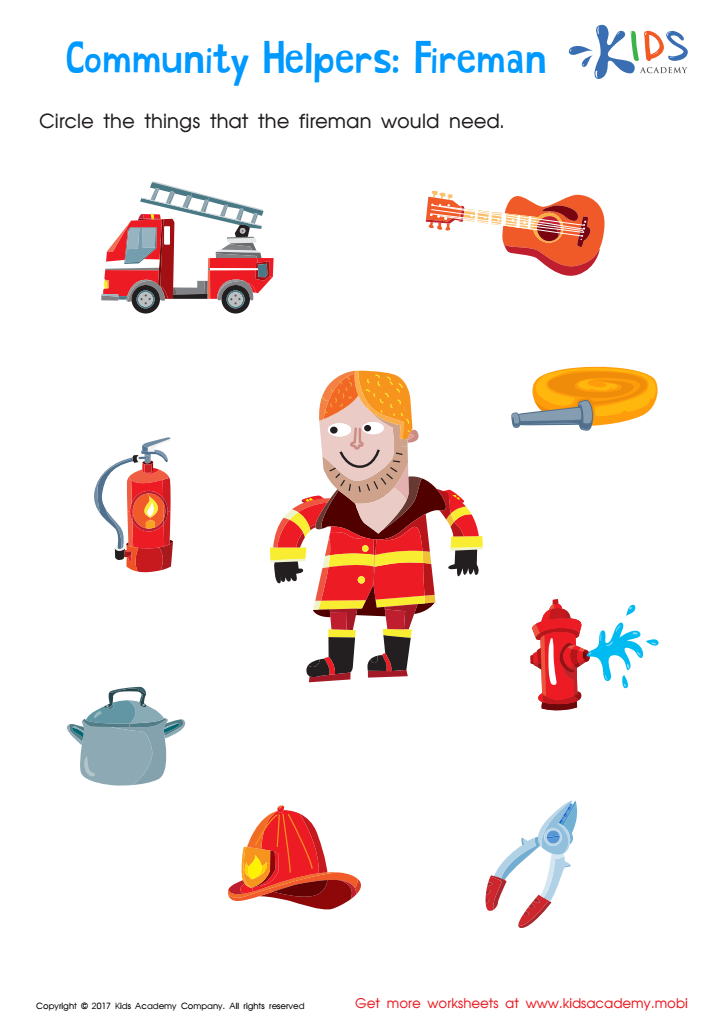Fine Motor Skills Community Worksheets for Ages 6-9
3 filtered results
-
From - To
Explore our engaging Fine Motor Skills Community Worksheets designed specifically for children aged 6-9. These resources are crafted to enhance hand-eye coordination, dexterity, and control through fun and interactive activities. From cutting and pasting to tracing and coloring, our worksheets promote practical learning that empowers young learners. Each activity is themed around real-world contexts, encouraging children to connect with their community while developing essential fine motor skills. Ideal for classrooms or at-home practice, these worksheets provide a wonderful way for kids to refine their abilities while enjoying the process. Dive into our collection and watch your child’s skills flourish!


Fireman Worksheet


Playground Worksheet
Fine motor skills are essential for children ages 6-9 as they form the foundation for a wide range of activities central to daily life and academic success. Parents and teachers should care about cultivating these skills as they greatly influence a child's ability to perform tasks such as writing, using scissors, buttoning clothes, and even manipulating toys. By focusing on fine motor development, children gain confidence in their capabilities, enhancing their self-esteem and motivation to tackle more complex tasks.
Fine motor skills also play a pivotal role in cognitive development and problem-solving. Engaging in activities that promote these skills encourages concentration, patience, and perseverance—all valuable traits that support learning across subjects. Additionally, collaborative activities foster social skills and communication, essential for building friendships and teamwork.
Moreover, investing in the development of fine motor skills can mitigate future struggles with academic tasks. For instance, difficulties with handwriting can lead to frustration and hinder a child's ability to express themselves effectively. By supporting fine motor skill mastery within the community, parents and teachers can create an enriching environment that promotes holistic development, ensuring children are not only prepared for academic challenges but also for everyday life activities.
 Assign to My Students
Assign to My Students





















